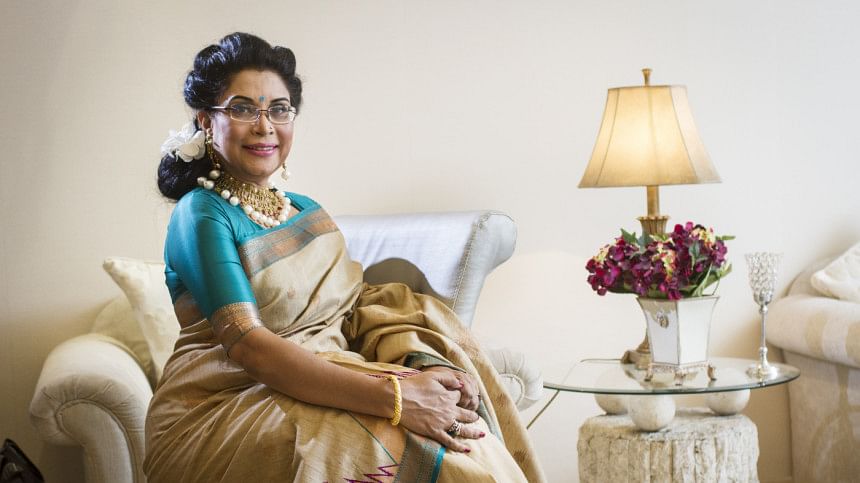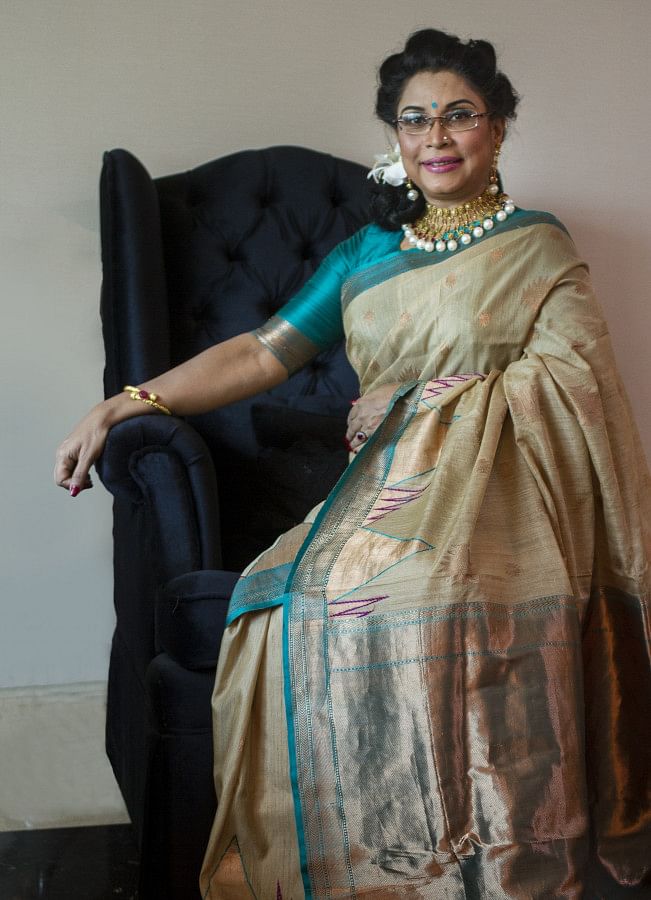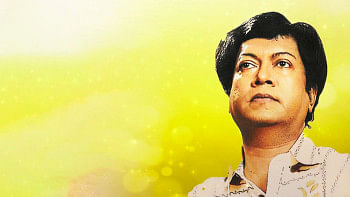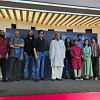My life is blessed, I do not have any regrets: Rezwana Choudhury Bannya

Rezwana Choudhury Bannya, the legendary Bangladeshi Rabindra Sangeet artiste, embarked on her musical journey with a unique blend of academic pursuit and passion for music. Born into a family with a deep appreciation for the arts, Bannya initially enrolled in Economics at Dhaka University, a practical choice influenced by her family. However, her passion for music fueled her desire to pursue her studies on a different path at Shantiniketan, steering her toward a lifelong dedication to classical music and cultural preservation.
We talk to the esteemed Rabindra Sangeet exponent ahead of Eid and Pohela Boishakh.
You have been enchanting us with your melodies for 50 years. How has been this journey for you?
My companionship with music has been going on for as long as I can remember. Professionally, I started singing in 1975, but music has been with me my whole life. I dedicated my life to music and it has given me everything. I couldn't ask for anything else.

Kanika Bandyopadhyay mentioned that you were her favourite student. Beyond your student-teacher relationship, if you could reflect on the special bond you had with her.
When I went to Shantiniketan in 1975 as a student, she was the head of Sangit Bhavana. Later, she became the principal. At that time, the teacher-student relationship was just as it was. The class was taken, programmes were organised, and rehearsals were held.
The bond with her grew after I came back to Bangladesh. Kanika Bandyopadhyay once came to Bangladesh in 1986, and I told her then that I wanted to go back to Shantiniketan, and learn from her and she was very happy about it. She retired by the time I went back to Shantiniketan. It was around 1990-1991. I went straight to her house with my children, stayed there initially. Later, I got a house of my own.
Back then I dedicated all my time to learn from her and I learned a lot. The special bond, that she loved me like her daughter, was formed during that time.
Rabindra Sangeet should not be 'altered' and only be sung in the purest form. Do you agree with this sentiment?
Firstly, whether Rabindra Sangeet should be sung purely or altered— I don't think there's a definitive answer to that. One aspect is maintaining the original lyrics or singing as we've learned from our gurus versus singing in one's own style.
Rabindranath Tagore said himself, "Let my songs be my songs". And it's not possible to 'modify' Rabindra Sangeet for any betterment, because who can know or feel his lyrics, tunes, and philosophy better than Rabindranath himself?
But everything, indeed, changes. We do not sing Rabindra Sangeet as we used to 100 years ago, and it will keep changing its form over the next 50 years for better or for worse. What's more important is to have respect for Rabindranath in every artiste's heart to sing his songs. That's the beauty of Rabindra Sangeet— even after so many years, we are still singing it and resonating with it. It's universal and every artiste who sings Rabindra Sangeet makes it their own.

You have received Swadhinata Padak, Banga Bhushan, Padma Shri, and every other accolade. How much value can these awards put in your contribution?
It's an absolute honour to receive all these awards. When an artiste receives acceptance and recognition, it certainly inspires them. I feel so blessed, honestly. And this honour is not just mine; it belongs to the cultural heritage of Bangladesh and all its people.
The Hindustan Times once featured you in 'The Influence of Baul on Rabindranath', which is quite an esteemed and intriguing topic.
The influence of Baul on Rabindranath underwent a significant transformation at a certain period. However, this was not throughout Rabindranath's musical career. When Rabindranath used to visit East Bengal from 1889 to 1901, he was acquainted with the Bauls here, interacted with them, and listened to their songs. We first encountered the influence of Baul in his songs during the partition of Bengal (1905). We find many songs from that period, in which he used Baul tunes. However, he was more attracted to Baul's philosophy than Baul's music, which we observed gradually at Shantiniketan. He returned to Shantiniketan in 1901 and started the ashram, and continued to keep the Baul philosophy alive until he died in 1941.
In his songs depicting nature, love, country, and diverse themes, we see a more pronounced Baul influence in terms of philosophy than Baul music itself. The songs he created during his stay at Shantiniketan, we can estimate that 60 to 70 percent of his songs have some form of Baul influence, whether it's in the lyrics, melody, thoughts, emotions, or movements.
Throughout your career, you have sung with bands like Souls and Renaissance, and also partook in playback singing as well. Was it intentional to not pursue this specific path as a career choice?
I have given everything to Rabindra Sangeet, and it has given everything to me. I never wanted to sing anything else. When I was required to sing Rabindra Sangeet for a film, I voiced a few projects in both Bangladesh and West Bengal, but that was never my plan or goal.
Is there any unfulfilled desire in terms of the extensive work you've done in the arena of Rabindra Sangeet?
There is a song of Rabindranath I want to refer to, "Diyechhi Joto, Niyechhi Tar Beshi"— I have received a lot. I don't want to calculate what I have done and what I have gained. My life is so full of blessings, that I don't have any regrets.
Transcribed by Zarin Tasnim

 For all latest news, follow The Daily Star's Google News channel.
For all latest news, follow The Daily Star's Google News channel. 









Comments